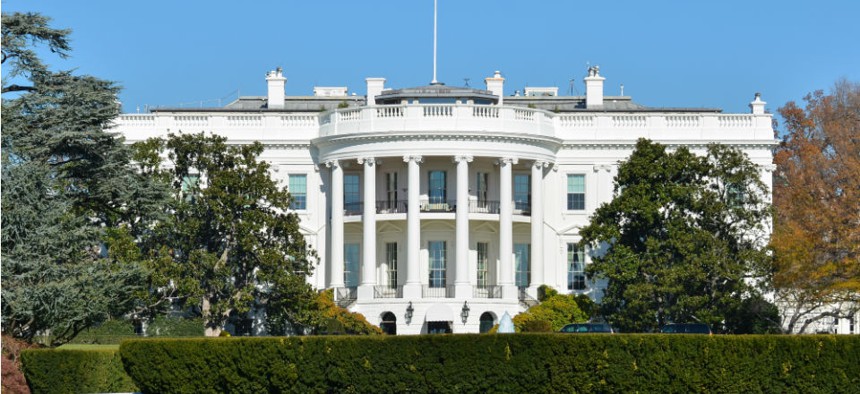
Orhan Cam/Shutterstock.com
Do the Secret Service's Security Lapses Go Past the White House?
The service does more than just protect the president. But little is publicly known about the procedures around others the agency guards.
Even with a change at the top of the Secret Service, the agency's missteps aren't going to disappear. After a knife-wielding Iraq War veteran with post-traumatic stress disorder jumped the White House fence and made it to the East Room last month, the agency has been in full-blown crisis, underlined Wednesday when the agency's director, Julia Pierson, resigned. As if that wasn't enough, it was also revealed this week that, unbeknownst to the Secret Service, an armed felon shared an elevator with President Obama last month.
The day before she resigned, Pierson testified before a House Oversight and Government Reform Committee hearing on the agency's breaches. Pierson said the agency was reviewing its protocols to ensure this wouldn't happen again, acknowledging that "our security plan was not properly executed."
With all the focus on White House security, it's easy to forget that the Secret Service's sole mission isn't just protecting the president and his family. Per federal law, the Secret Service can assign agents to a number of other people, in Washington and elsewhere. There are the obvious examples—Obama's immediate family, Vice Presidnt Joe Biden and his family. Then there are former presidents who, unless they decline protection, get agents for life. (A decade after resigning, Richard Nixon opted out of his due protection, choosing to pay for his own security detail rather than burn taxpayer money.)
Barring remarriage, former first ladies get life protection, too, though the children of former commanders in chief are only supervised until they turn 16. During a campaign, major presidential and vice-presidential candidates, as well as their spouses, get protection 120 days out from the election. A handful of other VIPs have Secret Service agents assigned to them, including visiting foreign dignitaries.
Secret Service spokesman Brian Leary said that after a "protective threat assessment," some executive branch officials also get protection. The president designates these people, such as certain senior White House staffers, via executive order—though the Obama administration has "significantly fewer" designees than George W. Bush's did.
The Secret Service wouldn't specify exactly which individuals get protection and which don't—as highlighting who doesn't have guards could make those people targets, Leary said. The agency also will not disclose the number of protectees. But now that so many of the agency's glaring failures to protect the president have gone public, could other people in Secret Service care be vulnerable, too?
Following Pierson's resignation, Rep. Darrell Issa, R-Calif., the chair of the House Oversight and Government Reform Committee, said there were still "serious questions" surrounding the Secret Service and pledged that Congress would continue to examine the agency's failures.
"The Secret Service, as a whole, is a concern," said an aide for Rep. Jason Chaffetz, R-Utah, who is on the committee. The congressman, the aide said, is "worried about the culture of the Secret Service and protocols not being followed."
Homeland Security Secretary Jeh Johnson announced that an independent panel would review the Secret Service security breaches. But he said the White House's security "should be the panel's primary and immediate concern."
Johnson also said he would ask the panel of experts, whose members have not yet been announced, whether there should be "a review of broader issues concerning the Secret Service."
Because the Secret Service is tight-lipped about whether the security of those other than the president is undergoing internal investigation, it's unclear whether the recent flood of shortcomings has prompted a closer look at the security of everyone the agency guards. Congress, for its part, won't let the Secret Service's dysfunction go without a deeper probe.
(Image via Orhan Cam/Shutterstock.com)







